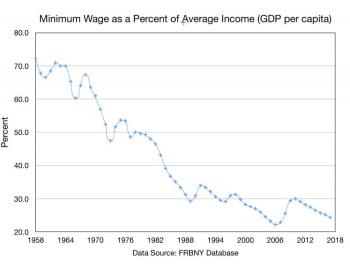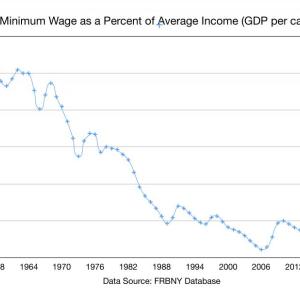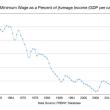Sen. Dow leaves out some details
Dear Editor:
Senator Dow took us down memory lane this week (From the Senate column, online) writing about his days as a youth, working with his father in the family furniture venture. It brought back memories to me of my first job as a teenager working as a cleaner in a privately owned bakery in Closter, New Jersey.
The senator expressed his concern at the recent and future increases of the minimum wage, warning of conceivable calamity. What he failed to mention is how the minimum wage has changed since those days when he and I were in high school, i.e., what he earned then and what our kids earn today.
In 1968, the minimum wage was $1.60. How does that compare to 2018? How would one go about evaluating this? One possible way is to use the consumer price index and adjust it for inflation. This method has two key distortions: first, it fails to capture productivity gains in our economy, and second, many of the things we purchase today did not exist in 1968, e.g., cell phones, computers, and so forth.
As an economist, my preferred measure which addresses these distortions is to evaluate the minimum wage as a percent of the average wage (GDP per capita). The accompanying chart shows how the minimum wage has fluctuated over the years with respect to this measure.
To reach the level which Senator Dow enjoyed as a youth, the minimum wage in Maine would have to increase to well over $20 per hour. In fact, Herr Bates, the German immigrant for whom I worked as a teenager, paid me the 2018 equivalent of roughly $35 per hour back in 1970.
Since that time, we have allowed the minimum wage, along with nearly all other wages and salaries, to slide, so that the very few, who enjoy positions of power, can channel an ever-increasing share of the gains from labor productivity to themselves. Way too many Mainers work long hours with little pay so as to support the powerful millionaires and billionaires.
Our economy has undergone quite a change over these five decades. It should not be a surprise if, when we try to move back toward a more fair labor market, those in power rise up in protest.
Marcus Hutchins
Southport
Event Date
Address
United States





























